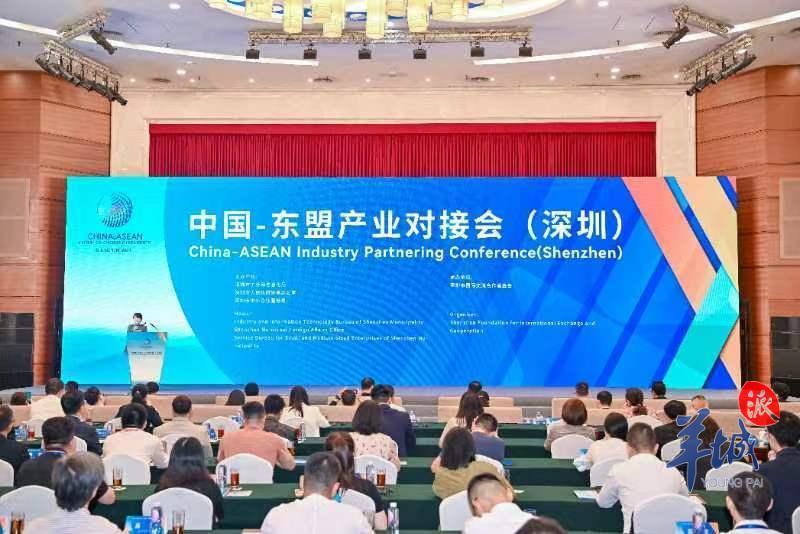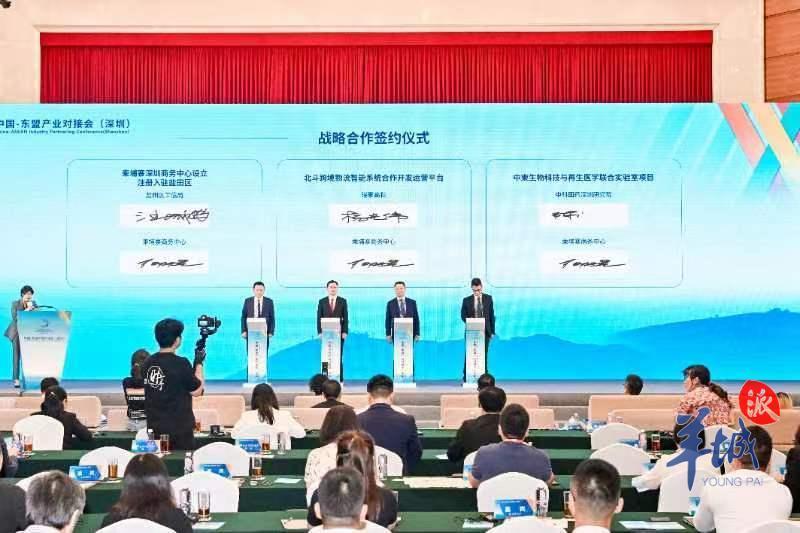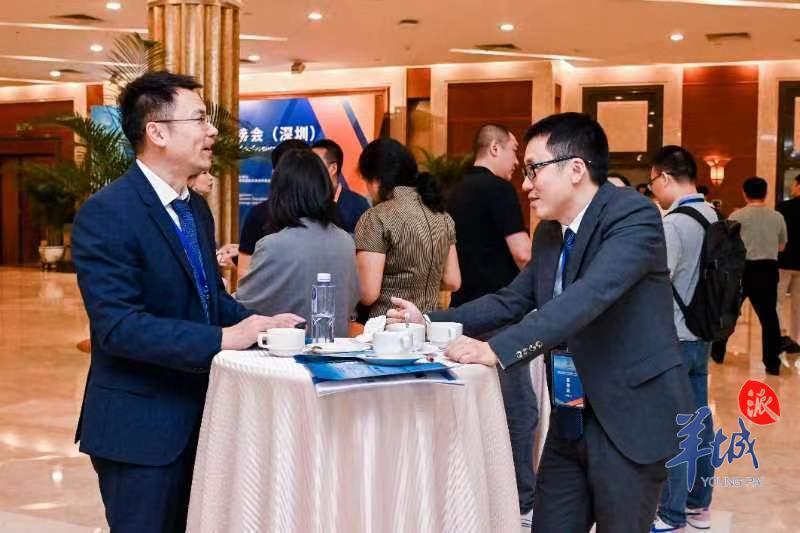
On July 5th, the China-ASEAN Industry Partnering Conference (Shenzhen) was held in Shenzhen, China. The event brought together consular officials, trade and investment representatives, and business delegates from ASEAN countries such as Myanmar, Thailand, Malaysia, Laos, Vietnam, and Singapore, along with representatives from relevant companies in Shenzhen. The participants gathered to explore new opportunities for future cooperation.

In 2020, ASEAN surpassed the EU to become China's largest trading partner, while China has maintained its position as ASEAN's largest trading partner for 12 consecutive years. ASEAN is the second-largest trading partner of Shenzhen, and both sides have a solid foundation for cooperation. As of now, Shenzhen Airport has opened nine cargo routes to the ASEAN region, with 96 flights weekly. From January to April this year, Shenzhen's imports and exports with ASEAN reached 163.96 billion yuan, marking a 6.7% year-on-year growth.
In recent years, cooperation between Shenzhen and ASEAN in emerging industries has deepened, with a particular focus on new energy vehicles, digital economy, and energy electronics. On July 4th, during the opening ceremony of the China-ASEAN Forum on Emerging Industries, the Initiative for Cooperation on Emerging Industries (Shenzhen Initiative) was announced. The initiative calls for further policy coordination, sharing of development experiences, and pragmatic cooperation in emerging industries such as new energy vehicles, digital economy, and energy electronics.
The partnering conference comprised three sections: industry policy promotion and business environment presentations, strategic cooperation signing ceremonies, and open exchanges between regions and countries.

During the conference, representatives from companies and institutions in countries such as Cambodia, the Philippines, Thailand, Vietnam, and Singapore signed 20 strategic cooperation framework agreements with more than 30 enterprises and institutions in emerging industries from Shenzhen and other areas. The signed projects cover fields such as trade, logistics, warehousing, biotechnology, mechanical manufacturing, intelligent equipment, and information communication, with an intended cooperation amount exceeding 5 billion yuan.
"We have signed an agreement for the implementation of an intelligent projector project in Thailand," said the representative from Shenzhen-based Orange Big Eye (OBE). "Since the beginning of the year, we have conducted market research in several ASEAN countries. Home-use intelligent projectors have a large user base in China, but this market is relatively untapped in Southeast Asia. Users in the region have shown great interest in our products, making them quite popular among local consumers."
中国与东盟加强产业合作对接
7月5日,中国-东盟产业对接会(深圳)举行。来自缅甸、泰国、马来西亚、老挝、越南、新加坡等东盟国家的驻华领事官员、贸易投资机构代表和企业代表,以及深圳市有关企业代表出席活动,共同探讨未来合作新机遇。
自2020年以来,东盟成为中国最大的贸易伙伴,中国从2009年起连续12年保持东盟第一大贸易伙伴地位。东盟是深圳的第二大贸易伙伴,双方有着良好的合作基础。截至目前,深圳机场口岸已开通9条前往东盟地区的货运航线,每周进出货运航班达96架次。今年1—4月,深圳对东盟进出口达1639.6亿元,同比增长6.7%。
近年来,深圳和东盟在新兴产业领域的合作不断深化,重点聚焦在新能源汽车、数字经济、能源电子等领域。7月4日,在中国—东盟新兴产业论坛开幕式上,新兴产业合作倡议(深圳倡议)发布。倡议呼吁强化各国政策协调、分享发展经验、务实开展新能源汽车、数字经济、能源电子等新兴产业领域合作。
本次对接会由产业政策推介与营商环境宣讲、战略合作签约仪式、区域国别开放交流三部分组成。
会上,来自柬埔寨、菲律宾、泰国、越南、新加坡等国的企业、机构代表与深圳等地的三十余家新兴产业企业和机构代表签署20项战略合作框架协议,签约项目涉及商贸、物流、仓储、生物科技、机械制造、智能装备、信息通信等领域,意向合作金额超50亿元人民币。
“这次我们签约的是智能投影仪泰国落地项目。”深圳市橙子数字科技有限公司相关负责人介绍,“我们年初开始就走访了东盟几个国家进行市场调研,家庭用智能投影仪在国内已有较大的用户群体,但东南亚这个市场基本是空白的,用户看到产品后都非常新奇,应该说还是非常受当地消费者欢迎的。”
文、图|羊城晚报全媒体记者 李晓旭
翻译|刘佳慧
责编|王瑜瑛









